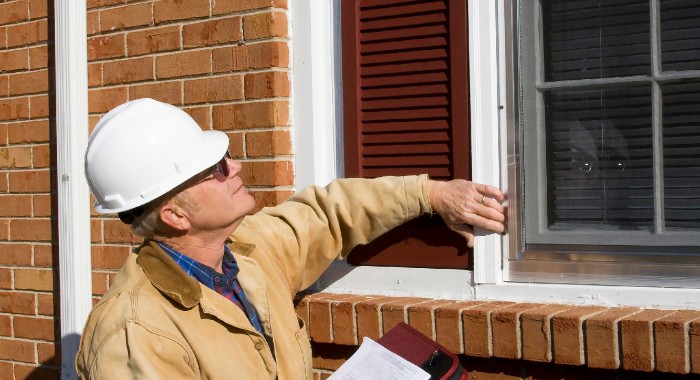If you are thinking about putting your home on the market, then you may be wondering, ‘How long does it take to sell a house in the UK?’
In this article we use our own experience to help answer this question. But the answer won’t be straightforward since there are a range of factors involved, including your geographic location and the type of property you are selling.
While some properties will linger on the market, other properties will sell immediately and there are no set criteria for delivering a quick sale, but we will look into what a vendor can do to attract buyers quickly.
However, when it comes to selling a home in the UK, you should appreciate that this process takes between three to four months on average.
If you want to know how long it currently takes to sell a property in your area, you can use this tool from Post Office Money Mortgages.
The two parts of selling a house
To answer our question “how long does it take to sell a house in the UK?” we have to take a closer look at the process. And it can actually be divided into two parts:
- From putting the house on the market to accepting an offer – can take anything from days to weeks to months
- Conveyancing process – on average this takes 12 to 16 weeks, but will depend on various factors
There are things that can go wrong and delay the whole process in both parts. Thankfully, most of it is in your control, so you can avoid, mitigate or manage it.
Getting to SSTC: Issues affecting the time it takes to sell your home

Let’s look at the first part of the process and find out what issues could arise that means it takes some time to get an offer.
There are a number of issues that will affect the time it takes to sell your home in this phase and these include:
- The price
- Your geographic location
- Property condition
- Market condition
- Time of year
While you can control some of these factors, like the condition of your house or the price, others will be out of your control, such as location or market condition.
When we sold our first home, a semi-detached 3-bed house, it took us 4 days to receive and accept an offer. Another of our homes, a 5-bed detached dormer bungalow, took four months to get to sold-subject-to-contract (SSTC).
Why such a difference? Well, it’s difficult to say, because sometimes there just isn’t a logical answer. However, as we look in more detail at the various issues, we may find some answers.
The price

There is no doubt one of the biggest factors will be the price of your property. Get this right from the outset and you’ll have buyers queueing up. Alternatively, you may be looking at making price reductions to attract interest.
Finding the correct price for your property can be a tricky process, but it must reflect accurately the property’s market value. This is where the expertise of an estate agent really plays a part.
From our experience we can say that it is always a good idea to get at least three different valuations from different estate agents. If they are all completely different, get another one or two agents in to value your home.
Once you have three valuations around the same price, you know which is the most accurate price. Needless to say we would recommend going with one of those estate agents.
The lower the price, the quicker your home will sell. So it depends on how quickly you want to sell but also on how much you need/want to get for your home. This is a balancing act, but a good estate agent will be able to advise you on the best price for your situation.
Location, location, location
One of the most influential factors when it comes to selling a home quickly is its location. It makes sense that if your home is in a desirable location or neighbourhood, then buyers will be more willing to buy.
It’s for this reason why there is such a huge variation in the selling time between towns and cities. Here are some things buyers are particularly attracted:
- A desirable neighbourhood
- Outstanding schools
- Low crime rates
- Green parks
While you aren’t able to do anything about the location of your property, you can adjust the price to account for it.
Property condition
One of the biggest influential factors when selling a home in the UK is down to the property’s condition.
Those homes that shine and sparkle will tend to sell much quicker because they attract buyers who are not interested in those homes that need work.
Most buyers will be attracted to those homes where they can visualise themselves living in and not in those homes that are cluttered and poorly maintained which makes them more difficult to sell.
Over the years we have learned that you have to prepare a property for sale. So before we put any of our houses on the market, we made sure we repaired anything we spotted, such as a creaking door.

Then we look at redecorating, without spending too much money. This means mainly painting walls to freshen up the rooms. But we have also painted the tiles in the kitchen of one of the houses we sold over the years.
The kitchen looked quite tired, but we didn’t have the budget to refurbish it completely. So we just painted over the very old-fashioned tiles with a light blue. This immediately lifted the kitchen, even if the cupboards and kitchen top weren’t the most fashionable.
The better the condition of the property, the quicker it will sell.
Market condition
Another factor to consider when asking “how long does it take to sell a house in the UK?” is the market condition. The property market can be buoyant and dynamic, or it can be slow and quiet.
In 2021/22 when the pandemic and a stamp duty holiday caused demand to soar. Supply was rather low, which meant properties were selling at a manic rate.
The following year, in 2023, a cost-of-living crisis and elevated mortgage rates decreased affordability. As a result, the market slowed down and properties took longer to sell.
The market condition also has an impact on house prices, either driving them up or pushing them down. So it is vital that you understand what’s going in the market before deciding on a price. You should know that even in a slow market, houses do still sell, but only at the right price.
Time of year

It might surprise you, but there is a good and a bad time to sell your house. So when is the best time to put your house on the market?
Spring is the answer. As it gets warmer and nature springs back into life, many people are looking for a change or a new start and that’s when they decide to buy a new home.
Remember our first home that sold within 4 days? We put it on the market in March. And what about the 5-bed bungalow? We put it on the market in November. That was a very bad decision, and we should have known better.
After the spring rush, when kids break up for the summer and people are going on holiday, the housing market experiences a slump. So no good putting your house on the market then either.
While the market picks up a little bit in autumn, it won’t last long, because most people don’t want to be doing viewings in the run-up to Christmas or over the festive period. After all, there is enough to sort without trying to buy or sell a house.
But then on Boxing Day, Rightmove gets a rush of people looking for houses to buy. So putting your home on the market on Boxing Day is quite a good move.
As you can see, the time of year can play a big part in how long it takes to sell a house in the UK.
Conveyancing Process: Factors that may delay a house sale

The process to sell your home in the UK can be a tortuous one with setbacks and disappointment. Once you have accepted an offer on your home, the next part of the house selling process starts: the conveyancing process.
And there are factors that may delay this part of the process too.
Length of the chain
Most property sales are part of a chain. This means that the person buying your home has to sell their home. Their buyers might have to sell their homes. Equally, the sellers of your onward purchase might buy a home and so on.
A property chain of several parties isn’t unusual. With so many parties involved, processes naturally slow down. People further down the chain will have to wait for people higher up in the chain to find a home and get the process started.
There are ways to prevent a long chain when selling your home. If possible, choose a first-time buyer or a cash buyer. While this might not always be an option, if you have several offers, it is worth going for a buyer that isn’t in a chain, even if the offer might be lower.
You can also ask the seller of your onward purchase if they would be prepared to move into rented accommodation. This is something we always ask when we make an offer. Some sellers say yes, if necessary, others refuse blankly.
Another way is to take yourself out of the chain. You can move into rented accommodation yourself. Not only will this shorten the chain and speed up the process, it will also give you a stronger hand when buying your next property.
The length of the chain itself can dictate how long it takes to sell your home. But if one link of the chain breaks, it can collapse. This means, if one party pulls out, everyone in the chain might be back to square one.
Unfortunately this can happen and is more likely to happen the longer the chain is.
Incomplete Information/complicated enquiries

When you sell your home, the buyer’s solicitor will want as much information about the property as possible. If you provide incomplete information, then this can slow down the process. Because the solicitor will have to send enquiries to your solicitor. They will either answer them, if they can, or forward them on to you to answer.
As you can imagine, this can be a slow process. In our experience, the best cause of action to avoid delays because of this, is to get all relevant information about your property together once you have decided to put it on the market.
The kind of information the buyer will want to know about includes:
- Information about any works carried out (by yourself or previous owners), such as extensions or loft conversions
- Planning permissions where applicable
- Building regulations certificates where applicable
- Boiler service sheet
- Electrical certificates for any electrical works carried out
- Information about any right of way through the land
- FENSA certificates for new windows
- Warranties for bigger purchases, such as a new boiler or heat pump
Basically anything that relates to the house. We create a folder for every house we move into. We include the documents we got from the seller and add any new ones for any work we carry out. We also include invoices for any work carried out, such as a new kitchen.
Selling A Property? FREE Step-By-Step Platform
While this might not necessarily be required, it will help the new owners if they have an issue. When we decide to sell the house, we pass on the whole folder to our solicitor. This allows them to answer any enquires quicker, speeding up the process.
Some properties are more complicated to sell than others. For example, if you have a heat pump installed and solar panels or if your house is served by a private sewage treatment plant, the enquiries will be more complicated.
It will take the buyer’s solicitor longer to review all the information and make sure that all is in order. The best you can is to make sure that all necessary information are submitted to your solicitor.
Leasehold property
Selling a leasehold property will often take longer to sell than a freehold. This is because the conveyancing process is more complex. The buyer’s solicitor will also have to enquire into lease contracts, service charges, ground rents and other leasehold related issues that won’t occur with a freehold.
As this is out of the control of the seller, the best you can do is to accept that the conveyancing process for a leasehold property will take longer.
Issues with a survey report

Most buyers will arrange for a surveyor’s report. This could be a homebuyers report or another more specialised report. These can be nerve racking for sellers, because they bring up an issue that you haven’t expected.
Sometimes, the issue might be minor, but sometimes it could be more serious. When we bought our previous home, the homebuyers survey revealed signs of subsidence. Because this could be a huge problem, we arranged for a structural survey.
Thankfully, in the end the issue wasn’t an issue at all. But because we wanted a more specialised survey to be carried out, it delayed the process by a few weeks.
That’s the best case scenario, but it could be worse. It happens quite often that buyers withdraw from the purchase completely due to results of survey reports.
This means you lose your buyer and have to find a new one, which could take some time. You also might have to rectify the issue, which could take up more time.
One way to prevent this from happening is to arrange your own homebuyers survey. This will give you an idea of any potential issues and how you can resolve them before putting the house on the market. It will also give you peace of mind, knowing that it is unlikely that any problems are brought up by any survey.
Searches
Another area where delays could occur are searches. These are ordered by the buyer’s solicitor and will provide them with information about potential planning permissions in the area around the property, flood risk and information about water supply, etc.
Depending on the authority providing this information, the results could take a while to be received. Because this is part of the conveyancing process of buying, you won’t have any control over it.
If this does delay the process, all you can do is contact your buyer and ask them to chase the relevant authority.
Conclusion – How long does it take to sell a house in the UK?
Essentially, in answer to the question ‘How long does it take to sell a house in the UK?’ is ‘It depends’.
There are many factors that will determine how long it will take to sell your house. On average, it takes between three and four months to sell a house in the UK.
However, there are various factors that can influence the time it takes. First you have to find a buyer and accept an offer. This can take days, weeks or months.
Price, location, the condition of the property, the time of year, demand are all factors on how long it can take. The expertise and experience of an estate agent can help you find a buyer and sell quickly.
Then the conveyancing process starts. On average this can take 12 to 16 weeks. However, not all sales are the same. Some are quicker and others will take longer. The length of the chain, the complexity of the sale, the type of property will all play a role.
While there are some things you can do to speed up the process, sometimes you just have to accept that it takes a bit longer.
Of course, if you value speed over getting the maximum possible price for your property, you may want to consider a home buying company. You can use our quick house sale reviews to help find a reputable company.





